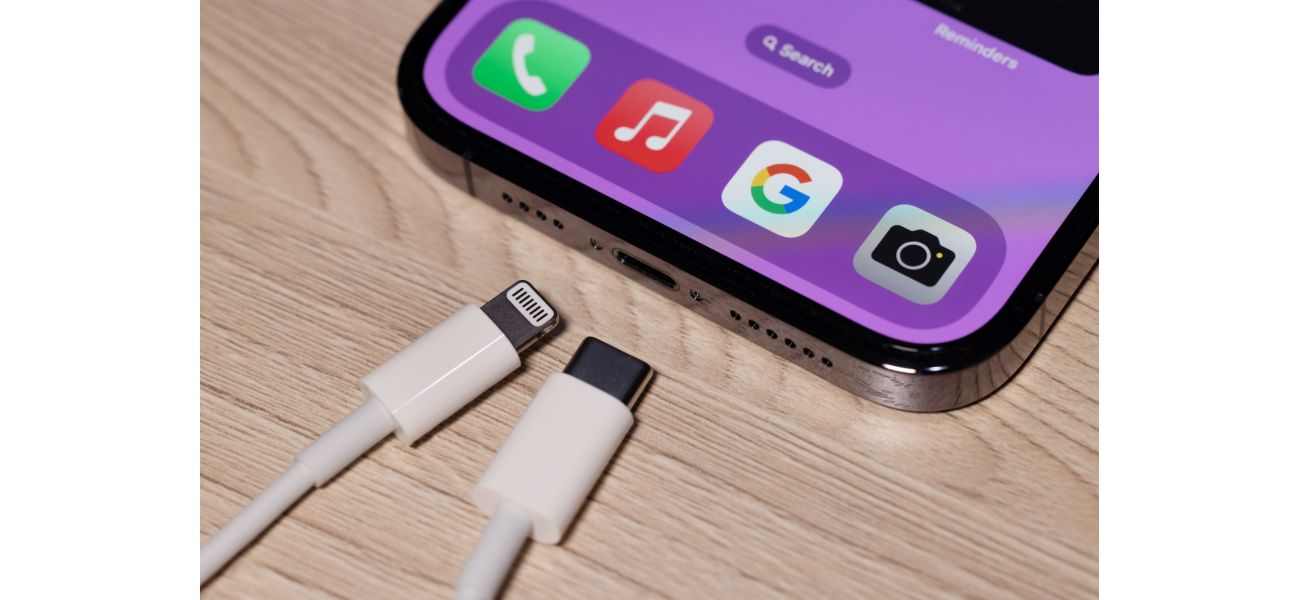UK phones may undergo a significant change in the near future.
Possible paraphrase: Government may implement universal charger.
October 16th 2024.

The United Kingdom is considering a major change that could have significant implications for the world of technology. The government is looking into the possibility of introducing a universal charger for all electronic devices in the country. This move would follow in the footsteps of the European Union, which has already implemented a similar policy.
The Office for Product Safety and Standards (OPPS) has initiated a consultation process to gather feedback from various stakeholders, including trade associations, manufacturers, distributors, and consumers. The proposed change would make the USB-C cable the mandatory charger for all electronic devices, including smartphones, tablets, and headphones. According to the OPPS, this change could bring numerous benefits for both businesses and consumers, as well as the environment.
This potential shift in the UK's charging system comes at a time when Apple has already discontinued its old charger in favor of the USB-C. In a statement, the company cited the advancements in wired charging technologies and international standards as the main reasons for this change. It also highlighted the potential of reducing electronic waste and providing customers with a standardized charging experience.
Interestingly, this is not the first time that the UK has considered the idea of a common charger for all. Just two years ago, the government had ruled out this option, but now it seems to be reconsidering it. If the change is implemented, the UK would be adopting the EU's controversial "Common Charger Directive," which is set to come into effect later this year.
One of the major advantages of a universal charger is that it would reduce the number of chargers that customers have to buy, ultimately leading to less waste. In fact, the European Commission estimated that discarded and unused chargers generate a staggering 11,000 tonnes of electronic waste every year in the EU alone. Additionally, producers would no longer need to sell phones and chargers as a package, assuming that most customers already have a USB-C cable.
If the UK decides to go ahead with this change, all phones and portable electronic devices in the country would need to be equipped with a USB-C charger. This charger has the ability to transmit both power and data, eliminating the need for separate cables for different purposes. Overall, this move could have a significant impact on the way we charge our electronic devices and could potentially bring about positive changes for the environment.
The Office for Product Safety and Standards (OPPS) has initiated a consultation process to gather feedback from various stakeholders, including trade associations, manufacturers, distributors, and consumers. The proposed change would make the USB-C cable the mandatory charger for all electronic devices, including smartphones, tablets, and headphones. According to the OPPS, this change could bring numerous benefits for both businesses and consumers, as well as the environment.
This potential shift in the UK's charging system comes at a time when Apple has already discontinued its old charger in favor of the USB-C. In a statement, the company cited the advancements in wired charging technologies and international standards as the main reasons for this change. It also highlighted the potential of reducing electronic waste and providing customers with a standardized charging experience.
Interestingly, this is not the first time that the UK has considered the idea of a common charger for all. Just two years ago, the government had ruled out this option, but now it seems to be reconsidering it. If the change is implemented, the UK would be adopting the EU's controversial "Common Charger Directive," which is set to come into effect later this year.
One of the major advantages of a universal charger is that it would reduce the number of chargers that customers have to buy, ultimately leading to less waste. In fact, the European Commission estimated that discarded and unused chargers generate a staggering 11,000 tonnes of electronic waste every year in the EU alone. Additionally, producers would no longer need to sell phones and chargers as a package, assuming that most customers already have a USB-C cable.
If the UK decides to go ahead with this change, all phones and portable electronic devices in the country would need to be equipped with a USB-C charger. This charger has the ability to transmit both power and data, eliminating the need for separate cables for different purposes. Overall, this move could have a significant impact on the way we charge our electronic devices and could potentially bring about positive changes for the environment.
[This article has been trending online recently and has been generated with AI. Your feed is customized.]
[Generative AI is experimental.]
0
0
Submit Comment




